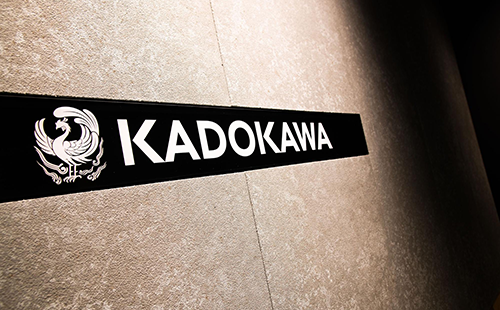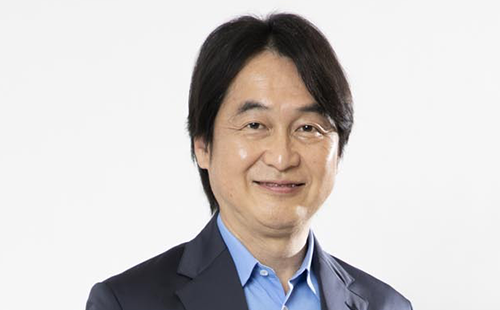1. Management policy and corporate governance
1. Management policy
The KADOKAWA group’s corporate mission is “A Platform for Creativity.” The Group advocates a “global media mix with technology” as its fundamental strategy that combines the stable creation of intellectual property (IP) consisting of a variety of portfolio content in the Publication/IP Creation, Animation/Film, Gaming, Web Services, and Education/EdTech Segments, the maximization of the LTV (life time value) of IP resulting from collaboration among business segments, and the rollout of IP on a global scale through the continual adoption of the latest technology, seeking to achieve growth and enhance corporate value over the medium to long terms.
2. Basic views on corporate governance
KADOKAWA CORPORATION (the “Company”) positions the enhancement of corporate governance as a necessary condition for the continuous development of the Group. With the aim of increasing management transparency towards shareholders and ensuring the trust and confidence of business partners, clients and society as a whole, we are continuously working to strengthen corporate governance.
Moreover, we believe that ensuring sound and transparent management, establishing a management system capable of adapting to a changing management environment, publicly announcing clear management benchmarks and policies, disclosing the status of achievement at the earliest time possible, and clearly defining managerial responsibility contribute to the enhancement of corporate governance.
3. Corporate governance system
3.1 Business execution system and auditing/supervisory system of the Company and reasons for adopting the systems
The Company has adopted a nominating committee system to strengthen the ability of the Board of Directors to perform its function of supervising and increasing the transparency of management and to ensure prompt decision-making by clearly separating the supervisory and executive functions.
The Board of Directors holds regular meetings once a month, in principle, and extraordinary meetings as necessary for the agenda regarding statutory matters, decision-making on important managerial matters and overseeing the status of the Company’s execution of business operations and the status of subsidiaries’ management. The Board of Directors has 12 members (five Inside Directors and seven Outside Directors). The Inside Directors are Mr. Takeshi Natsuno, Mr. Naohisa Yamashita, Mr. Shinobu Murakawa, Ms. Noriko Kase and Mr. Nobuo Kawakami. The Outside Directors are Mr. Hiroo Unoura, Ms. Ruth Marie Jarman, Mr. Tadaaki Sugiyama, Mr. Yu Sasamoto, Mr. Ayumi Uzawa, Ms. Etsuko Okajima and Mr. Koichi Kusano. The Board is chaired by Outside Director Hiroo Unoura.
The Company has appointed Outside Directors that account for a majority of the Board members to ensure the soundness and transparency of management. When selecting Outside Directors, the Company chooses candidates from the aspects of both the promotion of global media mix with technology, which is the fundamental strategy for the management of the Company based on its corporate mission, “a platform for creativity,” and the reinforcement of governance.
Outside Directors contribute to the sustainable growth of the Company by making recommendations for achieving enhancement of corporate value in the medium and long term and overseeing conflicts of interest between the Company and management. In addition, the Company adopts a structure whereby its three committees are each made up of a majority of Outside Directors, and through discussions within each committee and between the committees, Outside Directors closely exchange information and share perceptions with each other.
The members of each committee are as shown below.
(◎: Chairperson)
| Name | Officer category |
Nominating Committee |
Remuneration Committee |
Audit Committee |
|---|---|---|---|---|
| Hiroo Unoura | Outside | ◎ | ||
| Ruth Marie Jarman | Outside | ◯ | ◎ | |
| Tadaaki Sugiyama | Outside | ◯ | ◯ | |
| Yu Sasamoto | Outside | ◯ | ◯ | |
| Ayumi Uzawa | Outside | ◯ | ||
| Etsuko Okajima | Outside | ◯ | ◯ | |
| Koichi Kusano | Outside | ◎ | ||
| Naohisa Yamashita | Inside | ◯ | ||
| Shinobu Murakawa | Inside | ◯ |
Management Meeting and other committees
The Company delegates substantial authority for business execution to the Chief Officers, particularly the Chief Executive Officer, the Chief Human Resource Officer and the Chief Literature & Film Officer, to expedite decision-making.
In principle, the Management Meeting, which consists of all the Chief Officers, holds regular monthly meetings and extraordinary meetings as needed to make decisions on important management issues. Outside Directors may participate in meetings of the Management Meeting as observers as needed to enhance the oversight of business execution at the Company.
To further enhance the transparency of corporate governance, the Company has established non-mandatory committees: the Risk Management Committee and Compliance Committee. The Risk Management Committee has a supervisory function to facilitate risk management at the Company and Group companies. The Compliance Committee plays a role to ensure compliance at the Company and Group companies. The Compliance Committee is chaired by an outside expert (lawyer) and made up of a majority of outside experts and Outside Directors to ensure independence and objectivity.
3.2 Business execution system and auditing and supervisory system of subsidiaries
Subsidiaries of the Company adopt the Board of Directors system, in principle.
The Company has put in place a mechanism for ensuring that it exercises shareholder rights regarding appointment (or dismissal) of Directors and Audit & Supervisory Board Members of the subsidiaries and takes part in important decision-making of the subsidiaries. On usual times, the Company tracks and oversees the status of subsidiaries’ business operations through various meetings and other means.
3.3 Corporate governance diagram

3.4 Outline of liability limitation agreement
In accordance with the provisions of Article 427, Paragraph 1 of the Companies Act, the Company and each Outside Director have signed a liability limitation agreement that limits the liability for compensation for damages provided for in Article 423, Paragraph 1 of the Act. The maximum liability for compensation for damage of each Outside Director shall be the minimum amount provided for in the laws and regulations.
3.5 Outline of details of directors’ and officers’ liability insurance, and others
The Company has entered into a directors’ and officers’ liability insurance contract with an insurance company pursuant to the provisions of Article 430-3, Paragraph 1 of the Companies Act.
The insurance covers Directors, Chief Officers, Audit & Supervisory Board Members, Executive Officers and employees with supervisory authority of the Company and its subsidiaries. The insured do not pay premiums. The insurance compensates for damages including legal expenses and compensation for damages, and so forth. that insured persons should incur as a result of a third-party lawsuit, a shareholder representative lawsuit, or corporate litigation, etc. against them. However, the insurance does not compensate for damages, etc. resulting from criminal acts, etc. by an insured person so that the appropriateness of the duties executed by the insured person is not compromised.
3.6 Requirements for resolution regarding appointment of Directors
As requirements for a resolution of a General Meeting of Shareholders for the election of Directors, the Company’s Articles of Incorporation stipulate that shareholders holding one-third (1/3) or more of the voting rights of shareholders who are entitled to exercise voting rights shall attend the General Meeting of Shareholders, that the resolution shall be adopted by a majority of votes of the shareholders in attendance at the Meeting, and that the resolution shall not be by cumulative voting.
3.7 Matters for resolution of General Meeting of Shareholders that the Board of Directors can resolve and reasons for the foregoing
- The Company’s Articles of Incorporation stipulate that a decision on the distribution of surplus and other matters specified in each Item of Article 459, Paragraph 1 of the Companies Act shall be made by a resolution of the Board of Directors, not by a resolution of shareholders' meetings, unless otherwise specified by laws and regulations. The purpose of this provision is to return profit to shareholders in a flexible manner.
- The Company’s Articles of Incorporation stipulate that it may pay interim dividends to shareholders with the record date of September 30 each year, upon a resolution by the Board of Directors. The purpose of this provision is to return profit to shareholders in a flexible manner.
- Pursuant to the provisions of Article 426, Paragraph 1 of the Companies Act, the Company’s Articles of Incorporation stipulate that it may, by resolution of the Board of Directors, exempt any Director (including former Director) and any Chief Officer (including former Chief Officer) from liabilities to the extent provided for by laws and regulations for damages caused by the neglects of duties by the Director. The purpose of this provision is to ensure that Directors and Chief Officers can positively execute their duties.
3.8 Changes made to requirements for special resolution by General Meeting of Shareholders and reasons for the foregoing
Regarding requirements for a special resolution of the General Meeting of Shareholders provided for in Article 309, Paragraph 2 of the Companies Act, the Company’s Articles of Incorporation stipulate that shareholders holding one-third (1/3) or more of the voting rights of shareholders who are entitled to exercise voting rights shall attend the General Meeting of Shareholders and that the resolution shall be adopted by two-third (2/3) or more votes of the shareholders in attendance at the Meeting. The purpose of this provision is to ensure that the Meeting proceeds smoothly by relaxing the quorum for special resolutions at General Meeting of Shareholders.
Governance
-
2. Board of Directors, Nominating Committee, Remuneration Committee, Audit Committee, Independent Auditors
-
3. Remuneration for Directors and Chief Officers
-
4. Internal Control
-
5. Information on shareholdings, takeover defense measures
-
6. IR policy, enhancement of disclosure and insider information control













